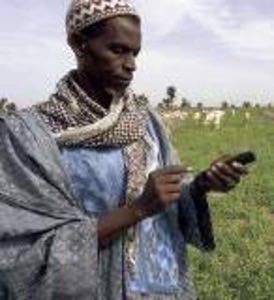“There are 2.2 billion mobile phones in the developing world, 305 million computers but only 11 million hospital beds,” said Terry Kramer, strategy director at British operator Vodafone at the Mobile World Congress held in Barcelona this week. That’s why Vodafone, along with the United Nations and the Rockerfeller Foundation’s mHealth Alliance have banded together to advance the use of mobile phones to better aid those in need of healthcare in the developing world.

The Partnership
The new alliance wants to guide governments, NGOs, and mobile firms on how mobile technology can be used to help save lives.
Already, mobile technology is providing and augmenting healthcare initiatives throughout the world. In a recent study released by the UN and Vodafone titled, “mHealth for Development: The Opportunity of Mobile Technology for Healthcare in the Developing World,” over 50 of these types of initiatives throughout 26 countries were discussed. The biggest adopters of mobile technology were India with 11 projects and South Africa and Uganda with 6 each.
Examples of the mHealth projects included:
- Sending mobile phone owners updates on diseases via SMS.
- Letting health workers in Uganda log data on mobile devices from the field.
- In South Africa, the SIMpill is a sensor-equipped pill bottle with a SIM card that informs doctors whether patients are taking their tuberculosis medicine.
- In Uganda, a multiple-choice quiz about HIV/AIDS was sent to 15,000 subscribers inviting them to answer questions and seek tests. Those who completed the quiz were given free airtime minutes. At the end of the quiz, a final SMS encouraged participants to go for voluntary testing. The number of people who did so increased from 1000 to 1400 over a 6-week period.
- In the Amazonas state of Brazil, health workers filled in surveys on their phones about the incidences of mosquito-borne dengue fever.
- In Mexico, a medical hotline called MedicallHome lets patients send medical questions via SMS.
The Power of Mobile Technology
But beyond just the altruistic aspects of mobile healthcare, the UN report also demonstrated to mobile operators how programs such as these could provide value to the industry. That, said UN/Vodafone Foundation Partnership head Claire Thwaites, was a crucial step since the industry, like many others today, stands at the edge of a downturn.

Because mobile technology is relatively cheap and easy to spread, it can connect the rural areas that desperately need healthcare with the large populations of doctors who live in the urban centers. For example, “in India,” said Dan Warren, director of technology for the GSM Association, the umbrella organization that hosts the MWC, “there are 1m people that die each year purely because they can’t get access to basic healthcare. The converse angle to that is that 80% of doctors live in cities, not serving the broader rural communities where 800 million people live.”
Some Drawbacks
Using mobile technology is not a panacea for the world’s health issues, though. Says Forrester analyst Elizabeth Boehm, one of the biggest issues with mobile healthcare is that “the people who are most in need of healthcare are usually more aged, so they don’t use the mobile or they’re not comfortable with it.” This limits the use of mobile phones in public health information campaigns.
However, as the technology continues to spread throughout the world, it’s easy to see how, over the course of time, phones could become a “doctor in your pocket” for the less fortunate citizens of our world.
Image Credits: UN Foundation & IDRC









